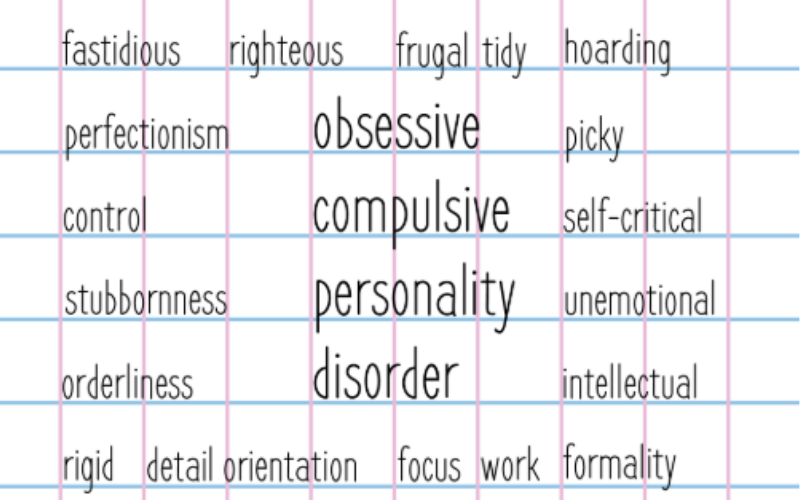Obsessive-Compulsive Personality Disorder: When Perfection Takes Over

We all know someone who loves to keep things neat, organized, and just right. A little structure is great – it helps us stay productive and focused. But what happens when this need for order and control starts to take over your life? That’s where Obsessive-Compulsive Personality Disorder (OCPD) comes in.
What Exactly Is OCPD?
OCPD is more than just being “a bit of a perfectionist.” It’s a long-term pattern where a person becomes overly focused on rules, order, and control; often at the cost of flexibility, creativity, and even relationships. According to the DSM-5, it usually begins in early adulthood and shows up across different parts of life: at work, at home, and in relationships.
Common Traits and Behaviors
Here are some signs that might sound familiar if you or someone you know leans toward this personality pattern, typically reflected in four or more of the following traits:

- Rules and details come first: You might get so caught up in plans and lists that you lose sight of the bigger picture.
- Perfection is everything: Projects never feel “good enough” to finish.
- Work over everything: Leisure, hobbies, and even friendships often take a backseat.
- Rigid sense of right and wrong: There’s little room for flexibility in morals or values.
- Hard to throw things away: Even useless items are saved “just in case.”
- “My way or no way”: Delegating is tough. Others rarely meet your standards.
- Careful with money: Spending feels risky, so it’s better to save for a “rainy day.”
- Stubborn and set in routine: Change can feel uncomfortable or even threatening.
OCPD vs. OCD: What’s the Difference?
Although they sound similar, OCPD isn’t the same as OCD (Obsessive-Compulsive Disorder).
People with OCD experience unwanted thoughts and repetitive behaviors to ease anxiety.
People with OCPD, on the other hand, genuinely believe their way is the right way – their control and order give them a sense of purpose, not relief from fear. OCD is usually easily distinguished from obsessive-compulsive personality disorder by the presence of true obsessions and compulsions in OCD. When criteria for both obsessive-compulsive personality disorder and OCD are met, both diagnoses should be recorded.
How It Affects Life and Relationships
On the outside, someone with OCPD might seem disciplined, reliable, and hardworking. But behind that image, there’s often tension – missed deadlines due to perfectionism, strained relationships due to control issues, and constant frustration when things don’t go “as planned.”
Friends or partners might find them overly serious or emotionally distant, while coworkers might struggle with their insistence on doing everything a certain way. Even relaxation can feel like a waste of time for them.
Why It Happens and Who It Affects
OCPD is actually one of the most common personality disorders, affecting around 2% to 8% of people. Studies show it’s diagnosed twice as often in men as in women. Some traits – like being highly organized or driven; can be socially rewarded, which makes spotting the disorder tricky.
Finding Balance
The good news? OCPD can be managed. Therapy, especially Cognitive Behavioral Therapy (CBT) helps people loosen their rigid thought patterns, accept imperfection, and find more balance between control and relaxation.

Being organized and ambitious isn’t a bad thing. But when perfection starts running the show and stealing your peace of mind, it might be time to take a step back. Sometimes, letting go just a little can make life a lot lighter.
For more stories on mental health, lifestyle, and wellness in Nepal, stay tuned to TheBuzzNepal.com.
Photo source: internet
Also Read
The Chimney at Hotel Yak & Yeti Presents: The Spookiest Dinner in Town
Bipul Chettri Announces ‘Pravah’ North America Tour 2025
How to Mix and Match Colors Like a Pro
Sushant KC Hints at New Music Drop Around February in his Instagram Story




























